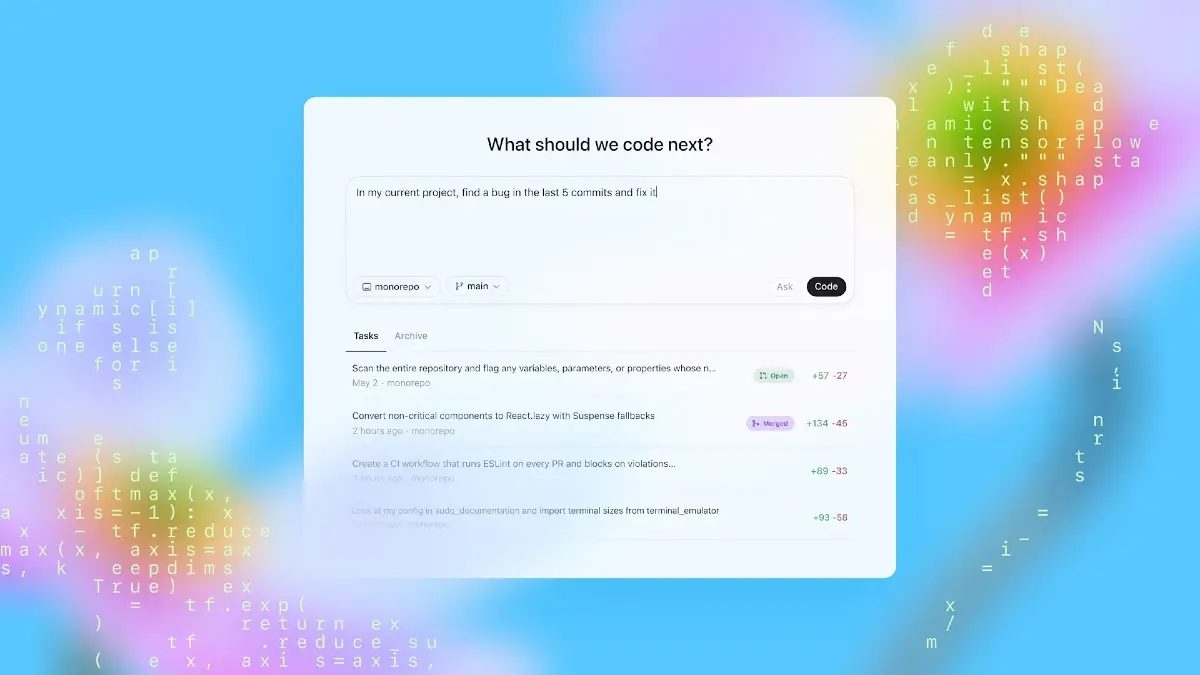Updated 17 May 2025 at 11:21 IST
OpenAI Launches Codex, Joins Operator and Deep Research to Change How Coding Works
OpenAI describes Codex as a cloud-based software engineering agent that can multitask.
- Tech News
- 3 min read

OpenAI has launched Codex, its new AI bot that deals in software engineering. This latest coding assistant joins the company’s existing AI helpers, Operator and Deep Research on ChatGPT. Codex is designed to write code, fix bugs, run tests, and manage multiple coding tasks at once- all within a secure cloud environment tailored for developers.
OpenAI describes Codex as a cloud-based software engineering agent that can multitask. “Codex can perform tasks for you such as writing features, answering questions about your codebase, fixing bugs, and proposing pull requests for review; each task runs in its own cloud sandbox environment, preloaded with your repository," the company wrote in its blog post.
Codex marks a major leap in AI’s role in programming. While Operator and Deep Research have already been assisting users with task automation and advanced information gathering, Codex takes AI support a level deeper by directly handling software development work.
What Codex Does
Codex is an AI tool for software development. It can run several coding tasks concurrently. For example, it can write new parts of a program, answer questions about your code, fix mistakes, and suggest changes for you to review. Codex performs every task in a separate space with your project files prepared for use. Codex can also open and modify your code files. It can run checks and tests to ensure everything functions properly. It keeps testing and fixing until the code is correct. When Codex finishes a task, it saves the changes and shows exactly what it did. You can look at the work, ask for changes, or add it straight to your project.
Advertisement
How Operator and Deep Research Fit In
- Operator acts as a virtual assistant that performs routine or repetitive tasks such as scheduling, file handling, and managing workflows.
- Deep Research specialises in gathering and concising in-depth information, useful for complex questions that require critical thinking and detailed analysis.
Together, these AI agents create a powerful toolkit aimed at improving productivity across many kinds of work, from simple administrative tasks to expert-level coding and research.
The Human Side: Shawn K’s Story
Still, the growth of artificial intelligence tools such as Codex raises some questions. Once a successful software engineer making $150,000 a year, Shawn K worked with Angular to create apps for a metaverse company. Shawn, however, lost his employment last year. Since then, he has not found a job even with his abilities and background. Shawn's story reflects increasing unrest in the tech community due to AI. Many fear that as AI tools like Codex get more powerful, human coders could be replaced or have less work.
Advertisement
The Big AI Debate
As AI sees a surge in its applications and daily usage, it has also fueled the debate on whether it is here to take away human jobs. The technology has already changed many sectors, replacing tasks that previously required human labour. With Operator, Codex, and Deep Research now able to perform more complex jobs, the discussion over the role of AI in employment has become more heated. OpenAI emphasises that these agents are designed to support and improve human workers, not replace them.
Published By : Priya Pathak
Published On: 17 May 2025 at 11:21 IST
